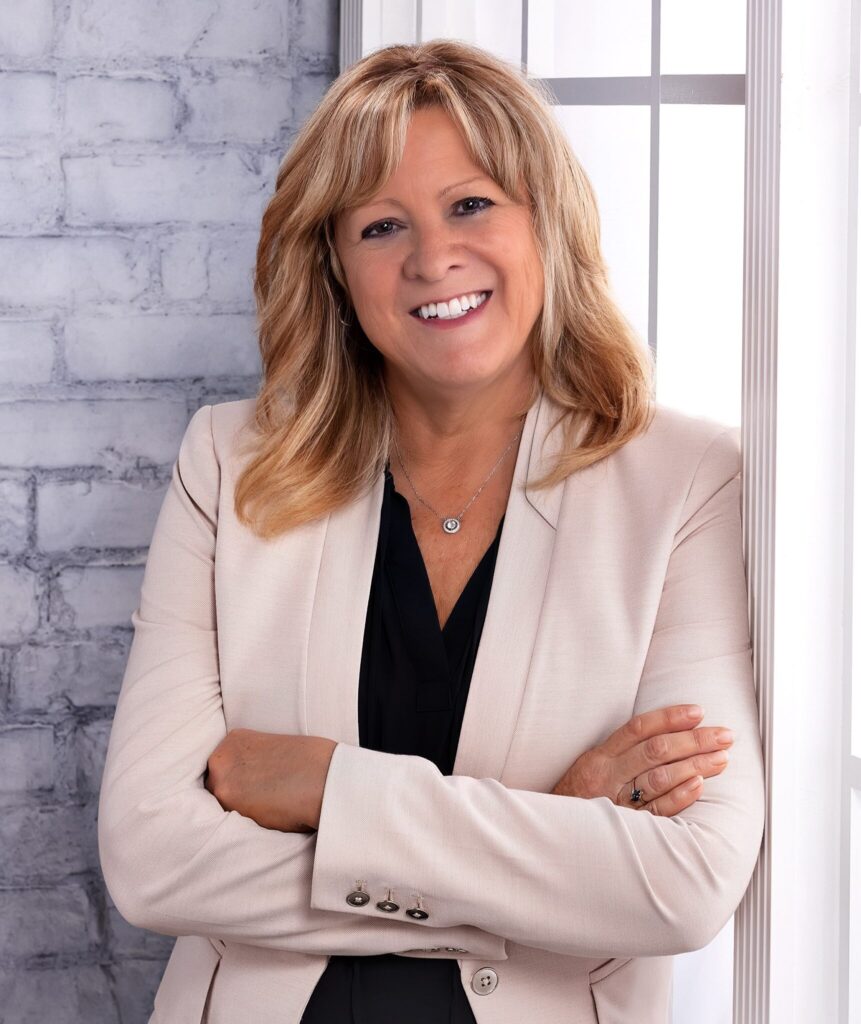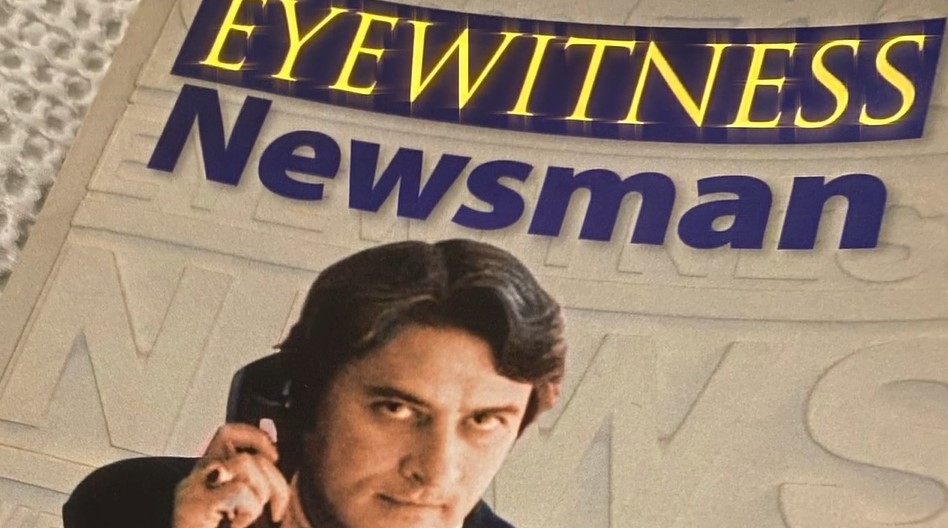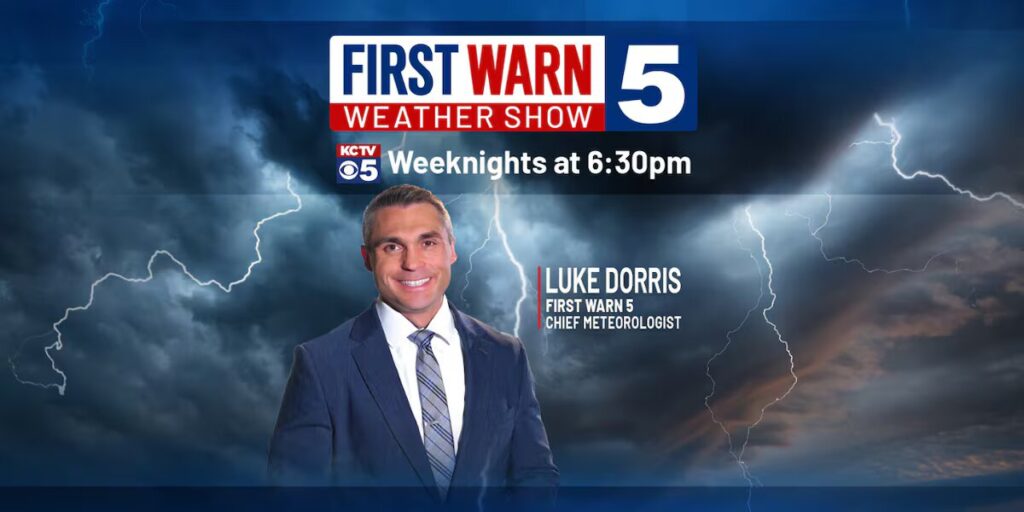Stations Missing Mobile Opportunity In Apps
 If broadcasters really want to own mobile, they need to harness and harvest consumers’ infatuation with constantly having their smartphones in hand, writes Neal Augenstein. The reporter and tech editor for WTOP-FM Washington says his own attempt was through an engagement app that lets people listen to the station and browse its site with easy UGC opportunities.
If broadcasters really want to own mobile, they need to harness and harvest consumers’ infatuation with constantly having their smartphones in hand, writes Neal Augenstein. The reporter and tech editor for WTOP-FM Washington says his own attempt was through an engagement app that lets people listen to the station and browse its site with easy UGC opportunities.
The World Needs A Journalist Rescue Fund
 Modeled on a successful program for protecting scholars threatened by their regimes, a similar project for journalists could help advance security for reporters working under conditions of limited press freedom. A well endowed Journalist Rescue Fund would have a profound, practical and immediate impact on preserving hard-won freedoms in many countries, and in ensuring a legacy that goes well beyond individual institutions.
Modeled on a successful program for protecting scholars threatened by their regimes, a similar project for journalists could help advance security for reporters working under conditions of limited press freedom. A well endowed Journalist Rescue Fund would have a profound, practical and immediate impact on preserving hard-won freedoms in many countries, and in ensuring a legacy that goes well beyond individual institutions.
TV Convinces Americans That Torture Is OK
 The idea that torture is both terrible and yet not terribly effective at producing useful intelligence is something we’ve known for a while — for centuries, one might even argue. But a funny thing happened on the way to the teleplay. Watch almost any popular American TV drama about spies, detectives and other affiliates of the long arm (or fist) of the law, and you might learn that torture is grisly and ghastly, sure. But you’d never know it was so frequently fruitless.
The idea that torture is both terrible and yet not terribly effective at producing useful intelligence is something we’ve known for a while — for centuries, one might even argue. But a funny thing happened on the way to the teleplay. Watch almost any popular American TV drama about spies, detectives and other affiliates of the long arm (or fist) of the law, and you might learn that torture is grisly and ghastly, sure. But you’d never know it was so frequently fruitless.
Govt.-Newsroom Revolving Door Whacks CBS
A journalist is not a spokesman, and a spokesman is not a journalist, but on the CBS Evening News Tuesday night, the twain did indeed meet — and it was the same person. It was just the latest example of the revolving door between network news operations and political flacks, an unfortunate and incestuous tradition that goes back decades.
When Forces Of Media Disruption Hit Home
The Internet lowered the barriers to entry for journalism. This has been great for consumers but not the traditional news industry, whose inefficiencies were profits by another name.
Dumb Stuff Said In Washington, D.C.
 NAB’s Dennis Wharton: “It’s been apparent for years that there is a concerted effort by broadcasting’s primary competitors to eliminate local TV as a competitive threat to their nirvana world — a world where “free” is eliminated from the telecommunications lexicon and programming content is only made available to those who will pay for it. In their world, the highest and best use of spectrum is used only by those who charge a fee for delivering content. But only of late have we been confronted with the bald-faced falsehood that ‘localism is a myth.’ ”
NAB’s Dennis Wharton: “It’s been apparent for years that there is a concerted effort by broadcasting’s primary competitors to eliminate local TV as a competitive threat to their nirvana world — a world where “free” is eliminated from the telecommunications lexicon and programming content is only made available to those who will pay for it. In their world, the highest and best use of spectrum is used only by those who charge a fee for delivering content. But only of late have we been confronted with the bald-faced falsehood that ‘localism is a myth.’ ”
Why I’m Worried About Newsroom Training
Knight Foundation’s Eric Newton: “We’re still struggling to sort out the three traditional types of [newsroom] training — craft skills, professional expertise and topic knowledge. Here comes the digital age with a fourth category: “change competencies.” These include curiosity, creativity, currency, flexibility, innovation, iteration and change management. Once thought to be unteachable, they’re now unavoidable. Show me a wholly creative journalist and I’ll show you a person who can thrive in a future no one can predict.”
How To Fix NBC’s Struggling ‘Today’
The show is in upheaval, with rumors flying that co-hosts are out and behind-the-scenes turnover. Move No. 1: Stop the leaks. Move No. 2: Find a new boss.
Wanted: Less Terrible TV Political Coverage
 Everyone knows there’s a problem with televised political coverage. The big question is how to fix it. Whether it’s cable news or the Sunday morning talk shows, something just doesn’t seem right. One gets the sense that they’re flailing, that the world has changed, but they haven’t. That they’re trying to figure out how to make it work, but so far it’s not coming together.
Everyone knows there’s a problem with televised political coverage. The big question is how to fix it. Whether it’s cable news or the Sunday morning talk shows, something just doesn’t seem right. One gets the sense that they’re flailing, that the world has changed, but they haven’t. That they’re trying to figure out how to make it work, but so far it’s not coming together.
For Once, Let’s Not Blame Nielsen
The networks are bashing the ratings agency for their ratings woes. The fact is, ratings are off because viewers are turning elsewhere for their entertainment.
Let Local TV Chart Its Own Tech Future
 Jerald Fritz of ATSC 3.0 system proponent ONE Media: “Broadcast television — like every other information medium — needs the freedom to evolve. We need to lose the economic, regulatory and engineering shackles that bind us to the silos of a single, fixed reception device anchored to the living room wall. So how do we do that? We’ve done that by reimagining our business. And that starts with a clear, clean, efficient way to get our signals to viewers wherever they are, using whatever equipment they have. Local broadcasters have a better idea.”
Jerald Fritz of ATSC 3.0 system proponent ONE Media: “Broadcast television — like every other information medium — needs the freedom to evolve. We need to lose the economic, regulatory and engineering shackles that bind us to the silos of a single, fixed reception device anchored to the living room wall. So how do we do that? We’ve done that by reimagining our business. And that starts with a clear, clean, efficient way to get our signals to viewers wherever they are, using whatever equipment they have. Local broadcasters have a better idea.”
Nielsen Calls For TV Ratings Overhaul
Megan Clarken, Nielsen’s EVP of Global Product Leadership: “The growing penetration of new devices and the popularity of subscription-based streaming services, time-shifted and over-the-top viewing — as well as cord-cutting and cord shaving — are fundamentally changing the TV industry. more and more video content is being viewed outside of the C3/C7 window via different devices, including connected TV technologies like Apple TV or Roku boxes, gaming consoles and digital devices, PCs, tablets and smartphones. Our goal is to create a total measurement of all content and all ads — regardless of how they are accessed and the ad model that they’re supporting.”
Why Traditional Media Isn’t Dying
 Tom Doctoroff, CEO of JWT Asia Pacific: “Contrary to conventional wisdom, and despite the disorientation that digital technology has wrought, “traditional” conceptual thinking is still fundamental to marketing. Today’s digital era calls for change — but not to bow to the algorithmic salvation of big data, or to the gee-whiz draw of viral video. Our mandate now is to achieve harmony between timeless brand-building truths and new digital technology opportunities. To do this, we marketers must debunk five platitudes.”
Tom Doctoroff, CEO of JWT Asia Pacific: “Contrary to conventional wisdom, and despite the disorientation that digital technology has wrought, “traditional” conceptual thinking is still fundamental to marketing. Today’s digital era calls for change — but not to bow to the algorithmic salvation of big data, or to the gee-whiz draw of viral video. Our mandate now is to achieve harmony between timeless brand-building truths and new digital technology opportunities. To do this, we marketers must debunk five platitudes.”
‘Bully-Boy Tactics’ From Dish Net’s Ergen
Dish has joined two other pay-TV companies, Time Warner Cable and DirecTV, to form the American Television Alliance. ATVA’s strategy, led by the big three, is simple — to manufacture as many TV blackouts of both cable networks and local broadcast stations as possible in hopes that Congress will “reform” a system that ATVA’s members have deliberately tried to break.
How To Build A Successful News Operation
 Many factors contribute to success at local news operations. Each of my positions over the years afforded me the opportunity to look at content and presentation and distribution through a changing series of lenses. This period also coincided with the tsunami disruptions to mainstream media, especially the birth and growth of social. Here’s a baker’s dozen of suggestions gleaned from life lessons over the years.
Many factors contribute to success at local news operations. Each of my positions over the years afforded me the opportunity to look at content and presentation and distribution through a changing series of lenses. This period also coincided with the tsunami disruptions to mainstream media, especially the birth and growth of social. Here’s a baker’s dozen of suggestions gleaned from life lessons over the years.
Talking About Radically Different News Future
Four new technology advances are poised to fundamentally change the nature of information distribution: The Internet of Things (IoT), location tracking, wearable computers and the semantic web. All four, writes Paul Sparrow, senior VP at the Newseum, are already being implemented in a variety of commercial and governmental applications. When they merge and become part of the communications system, he notes, they are going to bring profound changes to our daily lives and to the very nature of news.
Broadcast TV About To Go Way Of AM Radio
 The new streaming offerings from HBO and CBS are early signs that regular television is the new AM radio, writes Kevin Maney in Newsweek. The forces at work, driven by the Internet and data, add up to a giant generational shift toward a 21st century, free-form, urban, mobile lifestyle and away from the schedules, structures, suburbs, offices and marriages of the post-World War II era. In this new environment, the old model of broadcast TV will last about as long as an ice cube in a freshly poured glass of bourbon.
The new streaming offerings from HBO and CBS are early signs that regular television is the new AM radio, writes Kevin Maney in Newsweek. The forces at work, driven by the Internet and data, add up to a giant generational shift toward a 21st century, free-form, urban, mobile lifestyle and away from the schedules, structures, suburbs, offices and marriages of the post-World War II era. In this new environment, the old model of broadcast TV will last about as long as an ice cube in a freshly poured glass of bourbon.
Are We On The Verge Of TV’s 3rd Golden Age?
 Anvato Chief Evangelist says: “With new content monetization solutions like live linear streaming, live ad insertion and video-on-demand syndication, a workable revenue model is emerging for more and more content owners, too, including niche networks. Maybe by finally rationalizing programming delivery, à la carte models will spark television’s third Golden Age.”
Anvato Chief Evangelist says: “With new content monetization solutions like live linear streaming, live ad insertion and video-on-demand syndication, a workable revenue model is emerging for more and more content owners, too, including niche networks. Maybe by finally rationalizing programming delivery, à la carte models will spark television’s third Golden Age.”
The CNN App That Will Change TV
 I have seen the future of TV, and it is CNNgo. If the mere mention of a digital extension to a network triggers reflexive skepticism, that’s understandable; all they really do is just mimic linear channels or on-demand libraries. But CNNgo, currently available at no extra charge to participating pay TV providers, is a rare example of actual innovation. I sampled it during a 10-day free trial that that left me craving more when it ended last week.
I have seen the future of TV, and it is CNNgo. If the mere mention of a digital extension to a network triggers reflexive skepticism, that’s understandable; all they really do is just mimic linear channels or on-demand libraries. But CNNgo, currently available at no extra charge to participating pay TV providers, is a rare example of actual innovation. I sampled it during a 10-day free trial that that left me craving more when it ended last week.
Making Measurement Work for Programmatic
 The ad industry has always been consumed with the latest trends. This should be no surprise, given that marketers and their agencies spend the better part of their days trying to create them. But nothing in advertising has generated more buzz in recent months than programmatic buying. Buying ad inventory more efficiently by applying rules to technology-enabled, automated purchases has marketers salivating.
The ad industry has always been consumed with the latest trends. This should be no surprise, given that marketers and their agencies spend the better part of their days trying to create them. But nothing in advertising has generated more buzz in recent months than programmatic buying. Buying ad inventory more efficiently by applying rules to technology-enabled, automated purchases has marketers salivating.
Is Facebook Your Next Pay TV Provider?
While Twitter has been receiving most of the buzz around live television and tune-in, the launch of Facebook’s new video ad-serving platform, Atlas, has the potential to radically change that conversation, write Jesse Redniss, co-founder of BRaVe Ventures, and Alan Wolk, chairman of Second Screen Society. Redniss and Wolk note that Facebook’s video ad network can now offer networks a targeted TV promotions platform.
Future For Local: Selling What, Selling How?
As he looks at the future for local media companies, Steve Gray sees two kinds of companies: (1) Those that continue to focus on traditional media channels — newspaper, TV stations and radio stations — and shrink with the advertising spending on those media. (2) Those that morph into local media houses that can connect any advertiser with any audience through platforms, technologies and channels they own or don’t, to win dollars that are moving into digital advertising and marketing
Managing Ads Tough In Omniplatform World
But a more sophisticated software platform can make life much easier for agencies and media. It affords better workflow management of the content, ensures quality control checks of the various formats, reduces manual mistakes and saves time.
Whoa! Journalism’s New Code Of Ethics
 The journalism profession is trying to reduce speeding on the information superhighway. The Society of Professional Journalists adopted a new code of ethics this month and the main difference between the revamped code and and the one that had been in place since 1996 is that the new version addresses the alarming tendency to rush stuff onto the Web as soon as we hear about it, without taking the time to make sure it’s true.
The journalism profession is trying to reduce speeding on the information superhighway. The Society of Professional Journalists adopted a new code of ethics this month and the main difference between the revamped code and and the one that had been in place since 1996 is that the new version addresses the alarming tendency to rush stuff onto the Web as soon as we hear about it, without taking the time to make sure it’s true.
TMZ Changes Media Landscape And History
 Some people, particularly in the world of legacy media, still can’t bring themselves to think of TMZ and its companion site, TMZ Sports, which first broke the Ray Rice video in February, as the press. Memo to the head-in-the-sand gang: Get over it, grow up, quit being hypocrites and acknowledge the truth about the new media world we live in during these revolutionary times.
Some people, particularly in the world of legacy media, still can’t bring themselves to think of TMZ and its companion site, TMZ Sports, which first broke the Ray Rice video in February, as the press. Memo to the head-in-the-sand gang: Get over it, grow up, quit being hypocrites and acknowledge the truth about the new media world we live in during these revolutionary times.
The Case Against Binge-Watching TV
Americans are increasingly engaging in a practice known as television binge-watching — going through several episodes of a TV show in a single stretch. I used some recent trips to finish Showtime’s Dexter and start CBS’s The Good Wife. In between, I breezed through Netflix’s Orange Is The New Black and the second season of House of Cards. I have about 50 series on various watch lists — and people are continually recommending more. I know what I’ll be doing this Labor Day weekend. So why am I unhappy about this new way to watch TV?
Future Of Broadcast TV Under Scrutiny
Despite the umpteenth Emmy for ABC’s Modern Family, network television is most definitively under the microscope as a business. Compared to movie studios, television divisions still produce significant revenue, but that’s only because they have cable networks to lean on. The conclusion emerging is that over the long term network television is challenged — declining ratings, viewers’ ability to zap away commercials, Netflix fees on the decline and retransmission fees propping this up for who knows how long?
Emmys Owe TV Newcomers A Better Chance
 The primetime Emmys, bestowed for 66 years, are meant to celebrate excellence in television. But in Emmy’s eyes, excellence too often takes the form of stamina, not the burst of inspiration that may have launched a series and its characters many seasons earlier and since settled into routine. Too often, Emmy celebrates not excellence, but an excellently maintained status quo.
The primetime Emmys, bestowed for 66 years, are meant to celebrate excellence in television. But in Emmy’s eyes, excellence too often takes the form of stamina, not the burst of inspiration that may have launched a series and its characters many seasons earlier and since settled into routine. Too often, Emmy celebrates not excellence, but an excellently maintained status quo.
Interactive Images 101 For Newsrooms
Interactive images are one of the easiest, most flexible and exciting ways to digitally transform a story. Here are five ways to use interactive images in your own newsroom today.
Six Maxims For Challenged Local Media
 The litany of challenging news about legacy media companies began about three weeks ago, observes NetNewsCheck Publisher Kathy Haley, and rippled through newspapers, television and radio. Many of the moves were aimed at mollifying Wall Street, she notes, reminding legacy media companies that success is theirs to lose, no matter how complicated the playing field appears.
The litany of challenging news about legacy media companies began about three weeks ago, observes NetNewsCheck Publisher Kathy Haley, and rippled through newspapers, television and radio. Many of the moves were aimed at mollifying Wall Street, she notes, reminding legacy media companies that success is theirs to lose, no matter how complicated the playing field appears.
Wave Of Nostalgia Sets Back Television
The adage that Hollywood wants “the same thing, only different” explains why the nostalgia economy continues to grow. Why take a risk on something new when you can cash in on people’s memories of how fun 1985 was? Why spend the ever increasing amount of money it costs to make quality television on the avant-garde when you’re way more likely to make your money back on the original?
Got A Beef With TV? Why Not Sue Someone?
I find Washington’s latest brawl — House GOP members wanting to sue President Obama — to be inspiring. While the TV universe hardly compares to affairs of state, I’m moved to sue a few people myself (or think about it, anyway).
Sure, You Loved Lucy, But Vintage Has Limits
Rebroadcasts of ancient TV series show that “venerable” doesn’t necessarily mean watchable.
Political: It’s TV + Online, Not TV vs. Online
Why broadcast TV will continue to dominate political advertising for the next few election cycles
Please Tune Out All Those TV Studies
You remember eating. If you were hungry, you ate something. If you liked it, you ate some more. Today, of course, only a fool would eat, because the list of foods and components of foods that are bad for you is too long to master and changes almost daily. Well, there’s another candidate for king of causal confusion: television.
Why Watching Television Is A Good Thing
 As a poet, when I hear someone say, “I hate poetry — there’s nothing good out there,” my heart breaks a little. When someone says, “I don’t watch TV — I don’t want to waste my time,” I feel that same pang. I take offense to the snub not because I write for TV, I don’t, though I’d love to one day. I take offense for the people in the entertainment business and because the nay-sayers are just not giving TV the respect it has earned.
As a poet, when I hear someone say, “I hate poetry — there’s nothing good out there,” my heart breaks a little. When someone says, “I don’t watch TV — I don’t want to waste my time,” I feel that same pang. I take offense to the snub not because I write for TV, I don’t, though I’d love to one day. I take offense for the people in the entertainment business and because the nay-sayers are just not giving TV the respect it has earned.
Social TV Is Dead; Long Live Social TV
Remember the Gold Rush years of social TV? Here’s why they ended.
Second Thoughts On TV’s Second Screens
 Frazier Moore: “I find TV shows fall into two categories: Some — like Scandal, Game of Thrones or a sprightly comedy or probing documentary — deserve my full concentration. Other shows, the sort that fit the classic description of TV as “chewing gum for the mind,” I greet as a chance to zone out. In the former category, the second screen becomes an unwanted distraction. In the latter case, I just want to veg. To gaze, not engage.”
Frazier Moore: “I find TV shows fall into two categories: Some — like Scandal, Game of Thrones or a sprightly comedy or probing documentary — deserve my full concentration. Other shows, the sort that fit the classic description of TV as “chewing gum for the mind,” I greet as a chance to zone out. In the former category, the second screen becomes an unwanted distraction. In the latter case, I just want to veg. To gaze, not engage.”
Pay TV’s Mission Is To Kill Free Broadcast TV
 Fred Campbell, executive director of the Center for Boundless Innovation in Technology: “Pay TV’s fixation on retransmission rights isn’t about programming prices — it’s about eliminating the free TV model and increasing advertising revenues for pay TV distributors. This explains the cognitive dissonance of some free market advocates who, while clamoring for repeal of retransmission consent and other provisions that are essential to the free TV model, are not advocating for repeal of provisions mandating that TV stations broadcast their signals for free. It’s a nifty way of killing free TV without expressly acknowledging it.”
Fred Campbell, executive director of the Center for Boundless Innovation in Technology: “Pay TV’s fixation on retransmission rights isn’t about programming prices — it’s about eliminating the free TV model and increasing advertising revenues for pay TV distributors. This explains the cognitive dissonance of some free market advocates who, while clamoring for repeal of retransmission consent and other provisions that are essential to the free TV model, are not advocating for repeal of provisions mandating that TV stations broadcast their signals for free. It’s a nifty way of killing free TV without expressly acknowledging it.”
Barely Keeping Up In TV’s New Golden Age
 The vast wasteland of television has been replaced by an excess of excellence that is fundamentally altering my media diet and threatening to consume my waking life in the process.
The vast wasteland of television has been replaced by an excess of excellence that is fundamentally altering my media diet and threatening to consume my waking life in the process.

































